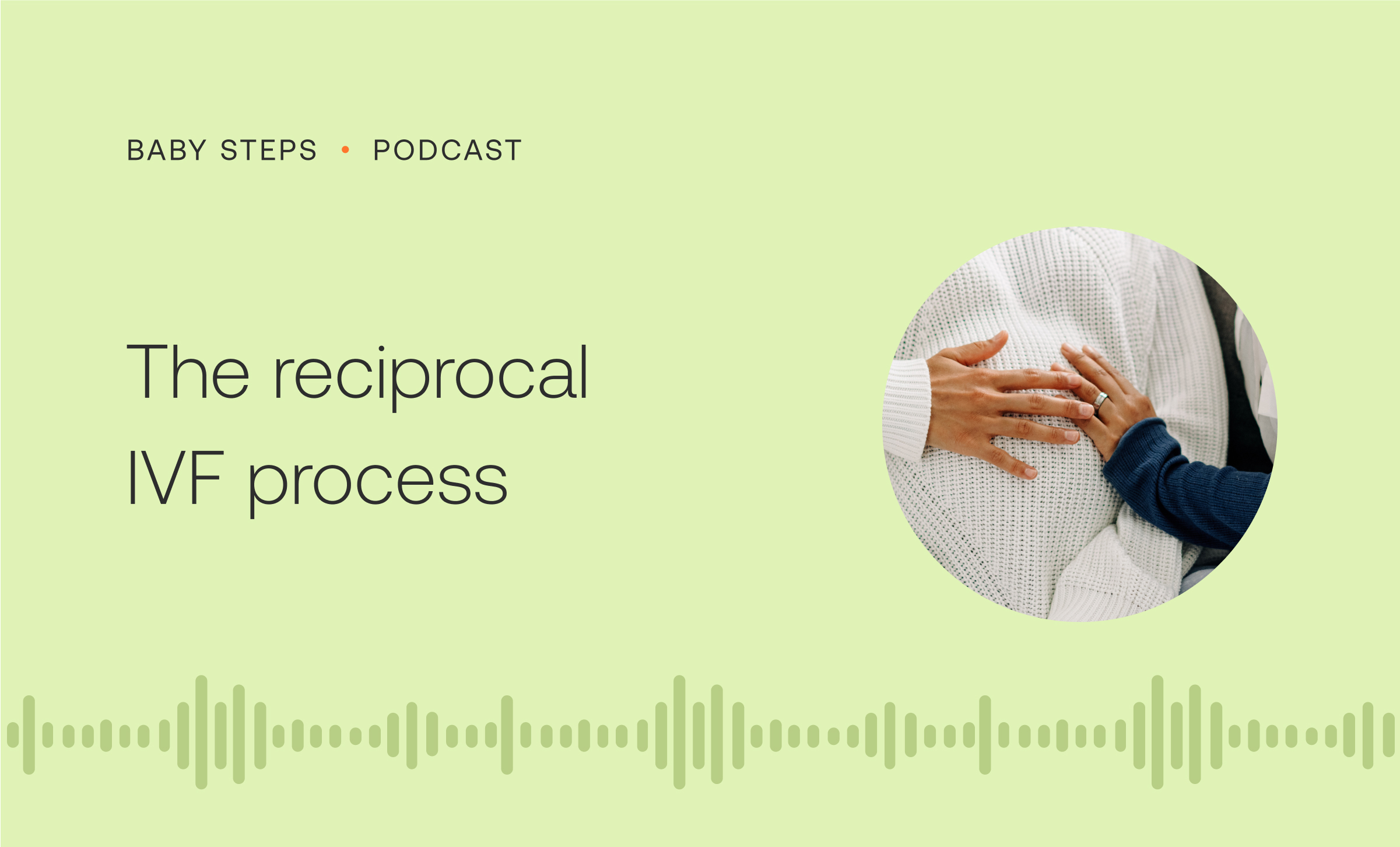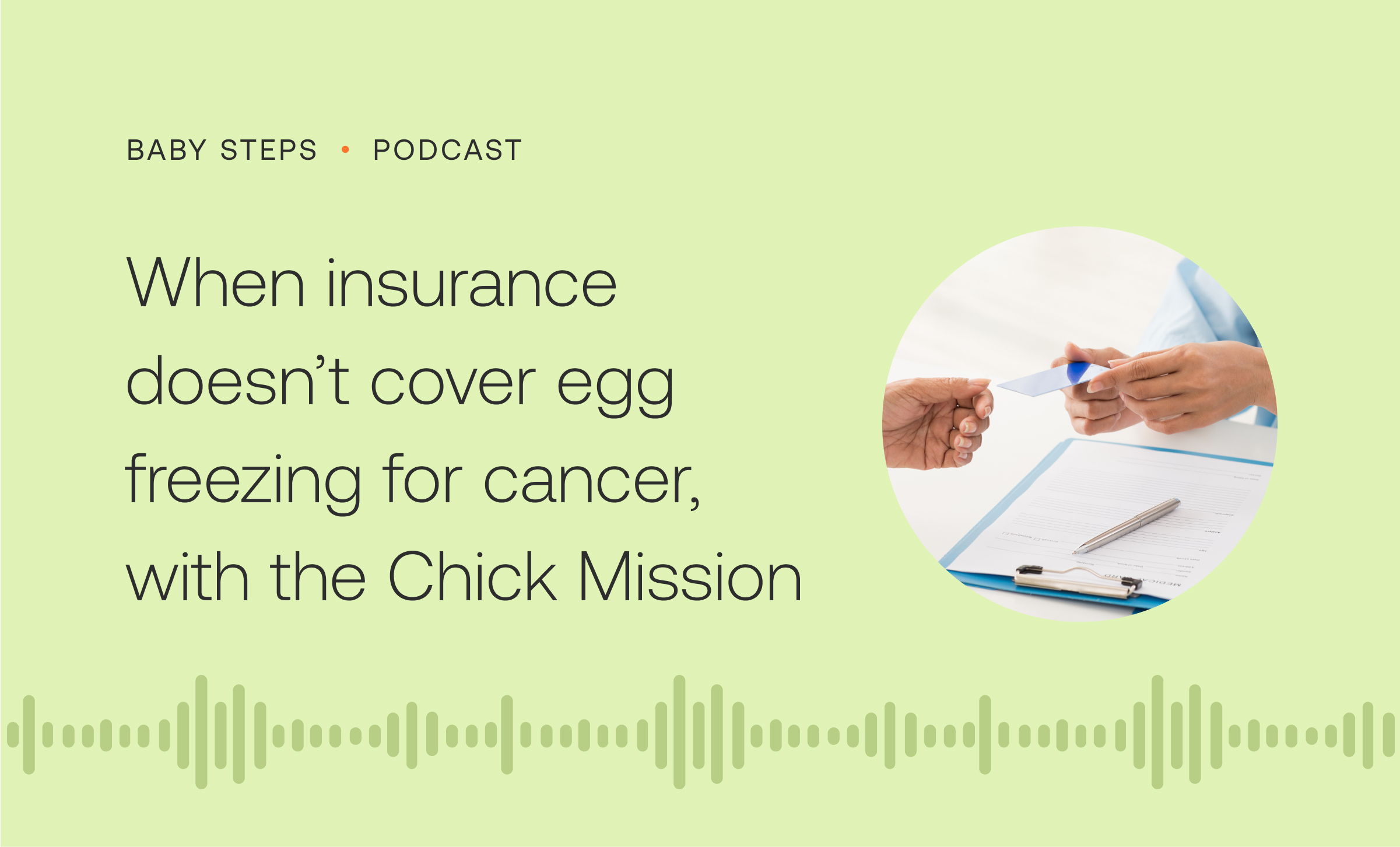Polycystic ovary syndrome (PCOS) is a common condition that affects many people of reproductive age. In fact, 4-20% of women globally have PCOS. Despite its prevalence, the exact cause is unknown, the diagnosis can be challenging to obtain, and there is no known cure. And while PCOS can impact fertility for some, there are many treatment options available. In my practice, I’ve treated many patients with PCOS and have the condition myself.
Let’s explore more about this condition and what you need to know about how it impacts fertility.
What causes PCOS?
Although the exact cause of PCOS is unknown, there are many factors that have been found to potentially play a role. For example, androgens are a kind of hormone that all bodies produce in different amounts. Typically, these levels are higher in males than females. People with PCOS are often found to have higher levels of androgens –– known as hyperandrogenism. In other cases, they can be sensitive to androgens and have clinical signs of this sensitivity, such as excess hair growth, hair loss, or acne.
Insulin is a hormone that plays a significant role in regulating blood sugar. When the body doesn't make enough insulin, or the insulin it releases doesn't work appropriately, that impacts the whole body, including the reproductive system. The prevalence of insulin resistance is higher in those with PCOS. Insulin resistance increases the risk of developing type 2 diabetes, cardiovascular disease, and can also play a role in some of the symptoms associated with PCOS. For example, increased insulin levels can lead to increased androgens, which can result in arrested follicular development. This causes ovulatory dysfunction — when someone doesn’t ovulate predictably.
What are the symptoms of PCOS?
Symptoms of PCOS can vary significantly between people, especially in severity. But common symptoms can include:
- Hair loss or thinning hair (also called androgenic alopecia)
- Irregular menstrual cycles (also called ovulatory dysfunction)
- Excess hair growth on the face and/or body (also called hirsutism)
- Persistent and/or severe acne
- Enlarged ovaries, or ovaries with a high number of follicles (polycystic ovaries or PCO)
- Obesity
- Infertility
- Discoloration or darkening of the skin in areas such as the neck, underarms, and under breasts, and other folds (also called acanthosis nigricans)
How is PCOS diagnosed?
Many people begin to use oral contraceptive pills or similar medications in their teens or early twenties. Sometimes this is for birth control, and other times it can be for heavy or painful periods. Oral contraceptive pills regulate the individual’s bleeds through the exposure and withdrawal of hormones, and because of this, it can mask PCOS symptoms like irregular periods or sometimes even associated acne.
Because irregular periods and acne are relatively common in the first few years after menarche (the first period) and teenage years, sometimes these symptoms are chalked up to “being a teenager” and many are told “it’s a phase and you will grow out of it.” For this reason, many times the diagnosis of PCOS is delayed until many years later. In fact, it’s not uncommon to first learn that you may have PCOS after going off birth control and trying to get pregnant.
My PCOS story is similar. I have had irregular cycles my whole life and, now even at the age of 40, I continue to have acne. I had brought up the symptoms to my care providers many times over the years, but was told “that’s because you are young” or “there are a lot of women with irregular cycles, but at least you are getting some periods. You are fine.” For many years, I believed it, and did not push for further evaluation. However, in my twenties, as I learned more about PCOS, I had further testing completed including an ultrasound to visualize my ovaries. I met PCOS diagnostic criteria, and ended up, in a way, diagnosing myself. I’m glad I did, because women with PCOS have an increased risk of developing metabolic syndrome, cardiovascular disease, and diabetes. With this diagnosis, I was empowered to be more proactive towards optimizing my health and taking measures like dietary and lifestyle modifications to decrease this risk.
How can PCOS impact fertility?
Many people with PCOS also have ovulatory dysfunction — they either don’t ovulate at all or ovulation is irregular and unpredictable. In some, this can be related to their elevated androgen levels. In others, they can have an elevated weight and insulin resistance and sometimes, with lifestyle modifications and weight loss, their periods can resume.
It’s important to know that with ovulation, the oocyte (egg) is only viable for 12-24 hours. For women who cannot predict ovulation, and time intercourse, it can be difficult to get pregnant.
How can I get pregnant with PCOS?
For most people with PCOS, it is still possible to get pregnant. For instance, even if ovulation is irregular, rare and/or unpredictable, it is important to take measures to prevent pregnancy if not trying to get pregnant, because spontaneous ovulation can still occur.
For those wanting to get pregnant, many interventions can help regulate ovulation and improve the likelihood of getting pregnant. Healthcare providers may recommend exercise and a healthy diet to help you reach a healthy weight and manage symptoms of PCOS that could impact fertility. A healthy weight plays a significant role in managing insulin resistance, regulating periods, and improving egg quality. Studies have shown that even a 5% reduction in weight can result in more predictable ovulation, sometimes decreasing the need for additional fertility interventions to get pregnant.
A healthcare provider may prescribe medications to induce ovulation, such as letrozole or clomiphene citrate. In many cases, this may be enough. But in other cases, additional interventions may be needed, such as intrauterine insemination (IUI) or in vitro fertilization (IVF).
How does Carrot help members with PCOS?
Carrot includes a diverse range of family-forming options and access to Carrot experts, like nutritionists, that can offer guidance to members trying to manage their lifestyle and diet. Carrot also provides personalized plans that allow members to navigate their paths to parenthood in the best way possible for their specific needs.
If you’re a Carrot member interested in learning more about your fertility, sign in to your account to get started.










.avif)



